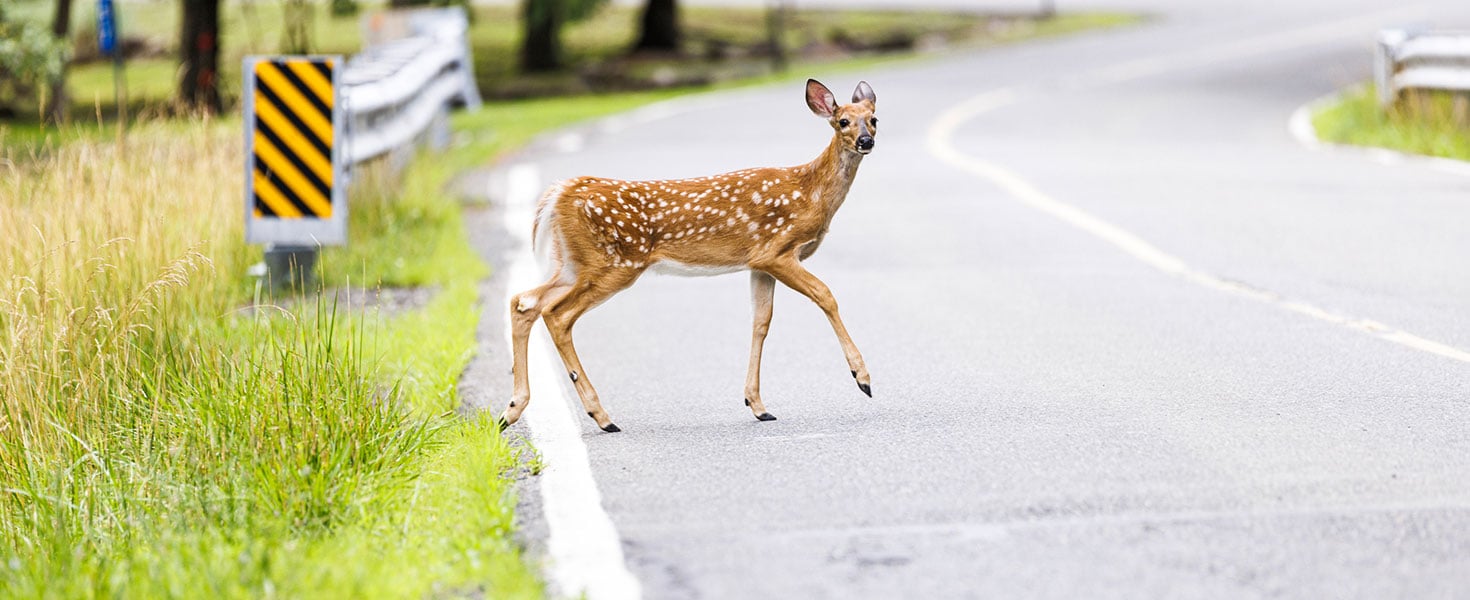
The white-tailed deer is a typical sight through much of the year. But when you’re driving, you may wish it wasn’t so common. According to the Highway Loss Data Institute, the number of insurance claims due to animal-vehicle collisions peaks each November.
To keep yourself safe on the road and when the unexpected happens, here are some tips on how to avoid hitting deer and what to do when you do.
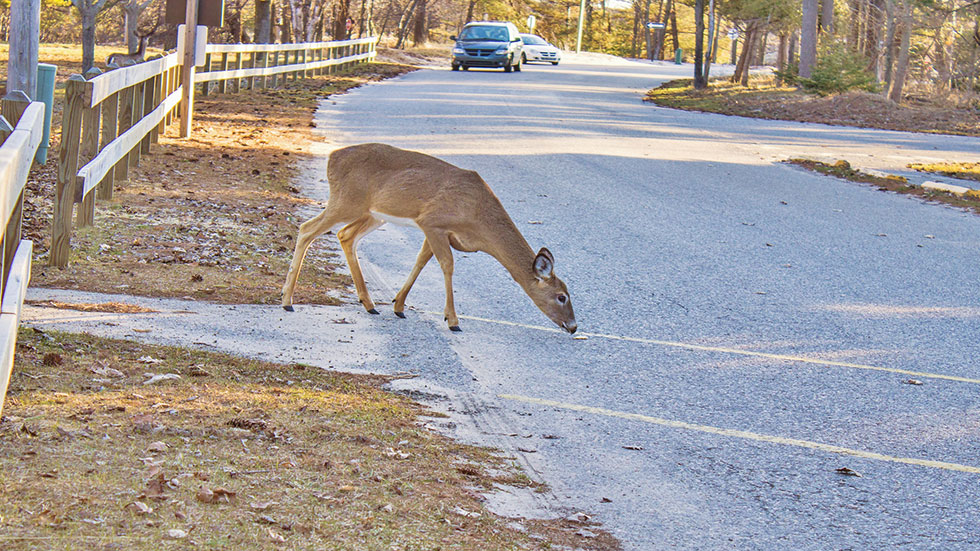
HOW TO AVOID HITTING A DEER
Fortunately, you can take steps to keep yourself deer-free on the roads. Remaining diligent is a significant game-changer. Spotting a deer before it’s too late is the best way to avoid an auto-deer collision. Here are some tips to keep you safe on the road:
- Scan the road – Look ahead while driving! This may seem like an obvious one, but too often, we get caught up in our driving distractions. We may lose focus on what’s ahead. If you can spot a deer (or any other animal) ahead of time, it will give you time to react appropriately.
- Use high beam headlights – This will aid in spotting a deer ahead of time. High beams help spot animals’ reflective eyes and increase your overall field of vision.
- Be cautious at dawn and dusk – Dusk and dawn are peak times for deer-related auto-accidents. Knowing when deer are most active can help prevent you from hitting a deer with a car.
- Always wear your seatbelt – According to the Insurance Information Institute, the chances of getting injured when hitting an animal are much higher if you don’t have on your seatbelt.
You also want to pay attention to the time of year. Deer tend to be moving and more active during fall time. We urge that you be cautious all year round, but knowing the trends of animals that can do some major damage to you or your vehicle can help you prevent a major accident.
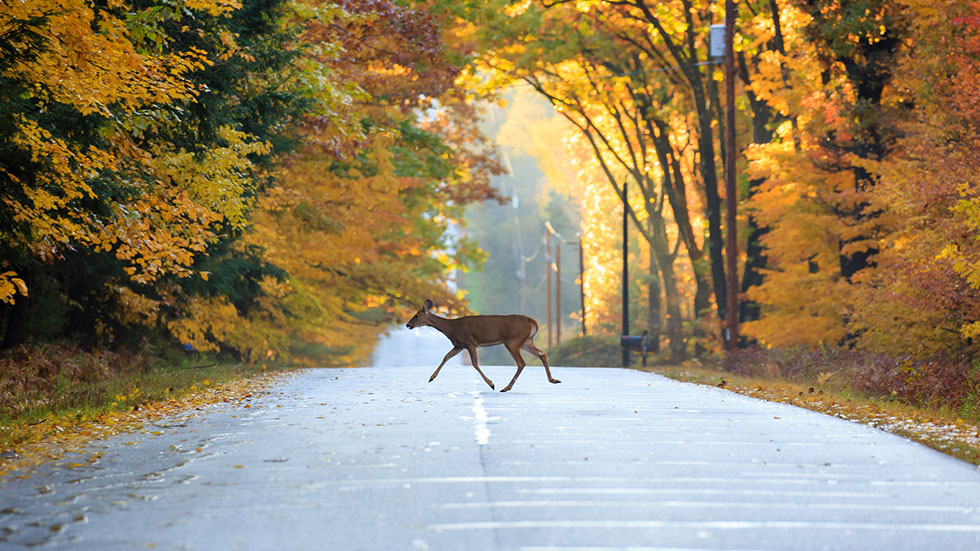
WHAT IF I CAN’T AVOID HITTING A DEER?
Unfortunately, there are instances in which you may not be able to avoid the deer. This may be due to inclement weather, lack of time to adjust your driving or the deer just appears out of nowhere. When a collision is imminent, you should know the proper way to hit a deer to keep yourself safe.
- Don’t swerve. By far, one of the biggest mistakes you can make right before you hit a deer is swerving. Swerving can seem correct in the moment, but this can cause you to hit another vehicle or someone’s property. This situation now changes your collision’s entire nature and can also seriously injure you or another driver.
- Don’t speed up. Contrary to popular belief, speeding up before hitting a deer will not do you any favors. It can cause more damage to you and your vehicle.
- Apply the brakes. Hold onto your steering wheel, apply the brakes and try your best to come to a complete stop as soon as you can. Braking is the safest way to hit a deer and will cause significantly less damage than the alternative.
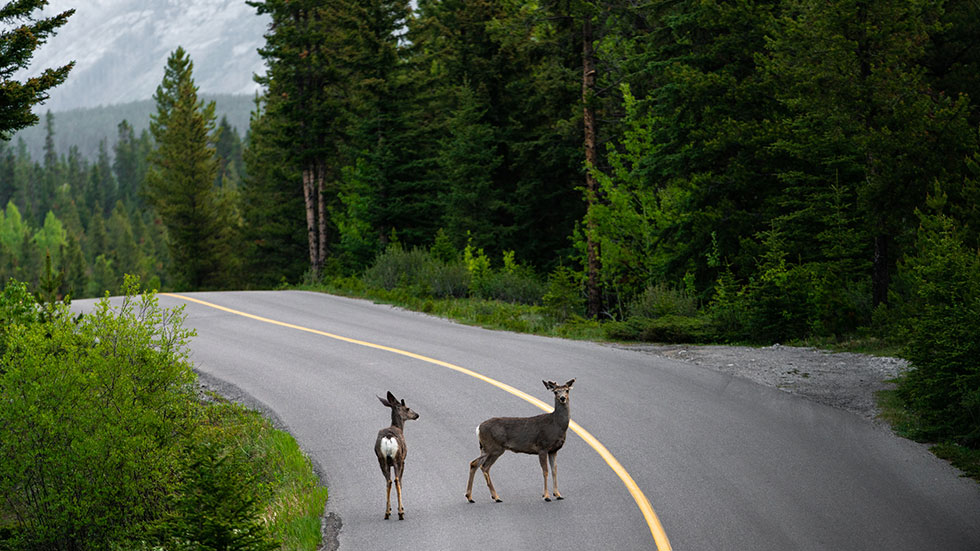
WHAT TO DO AFTER HITTING A DEER
- Move off the road. Moving off the road keeps other drivers and you safe. Turn your hazard lights on and move out of traffic. If your vehicle is inoperable, still try your best to get it in a safe spot.
- Report if the deer is on the road. Reporting the accident can help on many fronts, but especially if the injured deer is still in the roadway.
- Assess damage to vehicle. If you’re going to make a claim, you may want to snap a few pictures of the vehicle damage. It will help you and your insurance provider when processing the claim.
- Don’t automatically assume your car is ok to drive! Once you’ve taken all the necessary steps after hitting a deer, you’ll want to move on with your life. But don’t assume your car is ready to drive off. Thoroughly assess your car and any damages before driving off. Calling for help may be needed.
IS IT ILLEGAL TO HIT A DEER AND DRIVE OFF?
In short—no. Keep in mind this is only true if you only hit a deer. If you swerve and damage another vehicle or property, then yes. You’ll need to contact your insurance company, local police, etc. like you would with any other accident.
If this isn’t the case, it’s totally up to the driver’s discretion, but most states ask you to notify authorities if the deer is badly injured. It can be a potential hazard to anyone near it and needs to be handled as soon as possible.
Another factor that will warrant a call to local authorities will be if someone in the vehicle is injured. If so, call 911 as soon as possible.
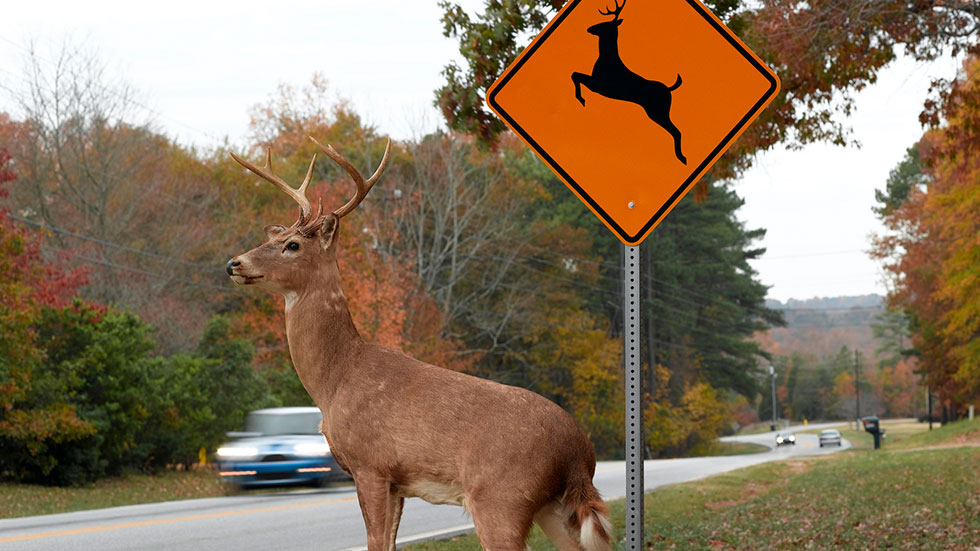
DO I NEED TO REPORT HITTING A DEER?
Aside from the exceptions mentioned above, you are not legally obligated to report to the police or call your insurance company. This is a “your prerogative” type situation, but here are some reasons you may want to consider reporting the auto-deer collision.
- Police will help walk you through the situation step-by-step. While the above tips can help prepare you for a less-than-ideal situation, the police will be able to help guide you through the process and ensure you’re taking proper safety measures.
- Calling the police will help with your insurance claim if you file one. An official police report can help aid you when speaking with your insurance company.
- Consider your insurance claim. Unless the damage is minimal or you plan to pay out of pocket, you’re going to want to notify your insurance company immediately. The sooner you inform them, the sooner your insurance company can process your claim.
